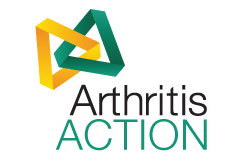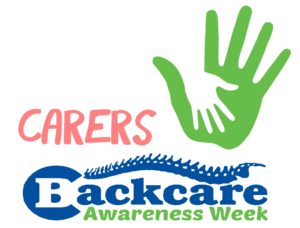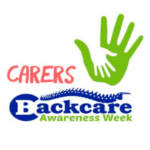A Mediterranean diet can reduce markers of inflammation and improve knee flexion and hip rotation in people with osteoarthritis, according to a study led by researchers at the University of Kent and published in the Journal of Nutrition Health and Aging this week.
 The study, commissioned by UK charity Arthritis Action, examined the effects of a Mediterranean type diet on 99 patients with osteoarthritis. Half of the participants followed a Mediterranean type diet for 16 weeks, whereas the other half continued their usual dietary behaviour.…
The study, commissioned by UK charity Arthritis Action, examined the effects of a Mediterranean type diet on 99 patients with osteoarthritis. Half of the participants followed a Mediterranean type diet for 16 weeks, whereas the other half continued their usual dietary behaviour.…
Read more of this article
Category: Arthritis News
We need to rethink “best treatment”
 by Paul Hitchcock, Chief Executive Officer of the British Acupuncture Council
by Paul Hitchcock, Chief Executive Officer of the British Acupuncture Council
We have an ageing population. Many of that population have multiple conditions. We have already reached a situation where the provision of health and care is problematic under the current system; too many people with too many conditions with insufficient cash or workforce capacity to enable their support.
Yet the system continues to take a reductive approach to treatments and support services. Commissioners or policy makers stop services or treatments when a new innovation is proposed so that, although they can claim to be cutting edge, in reality the system provides less support to fewer people and reduces patient choice at the same time.…
Read more of this article
Westminster Hall Debate and DCLG consultation
Westminster Hall Debate
 We have, through our ‘Arthritis Champions’ in the House of Commons, moved a backbench debate in Westminster Hall, to be held on Thursday 20 October. This debate will be discussing, primarily the themes of Arthritis Research UK’s Share Your Everyday campaign and we will be briefing MPs as such.
We have, through our ‘Arthritis Champions’ in the House of Commons, moved a backbench debate in Westminster Hall, to be held on Thursday 20 October. This debate will be discussing, primarily the themes of Arthritis Research UK’s Share Your Everyday campaign and we will be briefing MPs as such.
In support of our campaign, we aim for this debate to be an opportunity for MPs to share their own experiences of arthritis in order to encourage more people with arthritis to tell with their own stories about living with the condition and how it affects their day-to-day lives.…
Read more of this article
BackCare’s calendar of events for 2016/2017

National BackCare Awareness Week
3rd – 7th October 2016
‘Caring for Carers’
BackCare is working to help the UK’s carers with this year’s BackCare Awareness week.
For information about the event and how to order your BackCare Awareness Week pack,
please visit: http://www.backcare.org.uk/news/caring-carers-backcare-awareness-week/
The BackCare Christmas Carol Concert
12th December 2016
The Queen’s Chapel, 6:30pm
Queen’s chapel of the Savoy, Savoy Hill, Strand, London, WC2A 0DA
Tickets £18; donations for refreshments welcome.
To pre-order tickets please call 020 8977 5474
or visit http://www.backcaretrading.org.uk/…
Read more of this article
World Health Organisation landmark action plan will tackle tidal wave of musculoskeletal conditions
 The Arthritis and Musculoskeletal Alliance, an alliance of prominent health charities, professional and research bodies, today [Thursday 15th September 2016] welcomed a ground-breaking World Health Organisation action plan to tackle a tidal wave of musculoskeletal conditions in Europe [1]. The Action Plan for the Prevention and Control of Noncommunicable Diseases in the WHO European Region, which was approved by WHO Europe’s Regional Committee today, includes specific priority actions by all European countries to stem the rise in musculoskeletal conditions and to improve overall health.…
The Arthritis and Musculoskeletal Alliance, an alliance of prominent health charities, professional and research bodies, today [Thursday 15th September 2016] welcomed a ground-breaking World Health Organisation action plan to tackle a tidal wave of musculoskeletal conditions in Europe [1]. The Action Plan for the Prevention and Control of Noncommunicable Diseases in the WHO European Region, which was approved by WHO Europe’s Regional Committee today, includes specific priority actions by all European countries to stem the rise in musculoskeletal conditions and to improve overall health.…
Read more of this article
Guest Blog: How can we support people working and managing MSDs?
 by Rob Yeldham, Director of Strategy, Policy & Engagement for the Chartered Society of Physiotherapy.
by Rob Yeldham, Director of Strategy, Policy & Engagement for the Chartered Society of Physiotherapy.
Musculoskeletal disorders are the largest cause of disability in the UK. Some conditions may be caused by, or exasperated by, work. Others are not work related but impact on the ability of people to work. Only around six in ten working age people with an MSK are in work. Many people with arthritis are hiding their condition at work for fear of their employer’s reaction. So how can we support people working and managing MSDs?…
Read more of this article
We need to be speaking the language of decision-makers and commissioners
 Whether at the individual, organisational or indeed national level, when we scan the horizon in front of us and try to set out the path ahead for ourselves, it is occasionally useful also to look back at where we have come from.
Whether at the individual, organisational or indeed national level, when we scan the horizon in front of us and try to set out the path ahead for ourselves, it is occasionally useful also to look back at where we have come from.
ARMA began life in 1972 as the British League Against Rheumatism, and in 1996 changed its name to what it is today. With time, our membership expanded and grew to include a broad range of organisations, both professional and patient-led, including the British Orthopaedic Association, the Chartered Society of Physiotherapy, Arthritis Research UK and the National Osteoporosis Society – in addition to long-standing members such as the British Society for Rheumatology, Arthritis Care and NRAS.…
Read more of this article
Transforming care for people with MSK conditions
 by Dr Jill Firth, BHPR President, Consultant Nurse in Rheumatology and Director for Service Improvement at the Pennine Musculoskeletal Partnership Ltd in Oldham.
by Dr Jill Firth, BHPR President, Consultant Nurse in Rheumatology and Director for Service Improvement at the Pennine Musculoskeletal Partnership Ltd in Oldham.
Over the past 20 years of working as a special ist nurse, I have witnessed first-hand the changing face of care for people with Musculoskeletal conditions (MSK) – particularly Rheumatoid Arthritis – leading to better outcomes for patients.
This can, in part, be attributed to advances in treatment strategies, including biologic therapies, but is also a consequence of better access to care provided by a multi-disciplinary team (MDT) comprising consultant rheumatologists, specialist nurses, physiotherapists, occupational therapists and podiatrists as a core nucleus.…
Read more of this article
For the NHS, multidisciplinary working is the way forward
 It’s hard to describe a month like the one we’ve just had, which has been characterised by many positive things for our community, but overshadowed by external events. Like me, many of you will feel worried and dismayed at the result of the EU referendum. There is no denying that whatever the practical implications of it – politically, for the NHS, for our respective areas of work – and whatever actually ends up happening at the end of what could well turn out to be a long and winding road, this result casts tremendous uncertainty over the UK, and Europe, in many different ways and for some time to come.…
It’s hard to describe a month like the one we’ve just had, which has been characterised by many positive things for our community, but overshadowed by external events. Like me, many of you will feel worried and dismayed at the result of the EU referendum. There is no denying that whatever the practical implications of it – politically, for the NHS, for our respective areas of work – and whatever actually ends up happening at the end of what could well turn out to be a long and winding road, this result casts tremendous uncertainty over the UK, and Europe, in many different ways and for some time to come.…
Read more of this article
Guest Blog: Solving the puzzle of Musculoskeletal Service transformation
by Professor Peter Kay, National Clinical Director for Musculoskeletal Services for NHS England.
 I was asked to write a blog to raise the profile of my MSK work supported by the Long-Term Conditions Team and, through the cryptic labyrinth of various schemes and initiatives, share with you my thoughts on how we can support sustainable, cost-effective transformation whilst still championing the more person-centred approach.
I was asked to write a blog to raise the profile of my MSK work supported by the Long-Term Conditions Team and, through the cryptic labyrinth of various schemes and initiatives, share with you my thoughts on how we can support sustainable, cost-effective transformation whilst still championing the more person-centred approach.
Easy task right?
Increasingly we are faced with the challenge of implementing population-level interventions in a bid to tackle unwarranted variation within our local areas.…
Read more of this article









